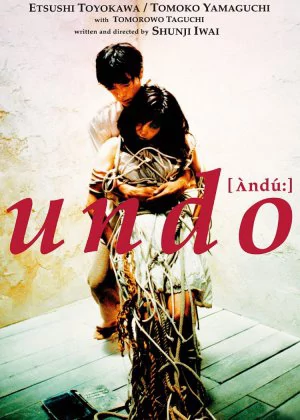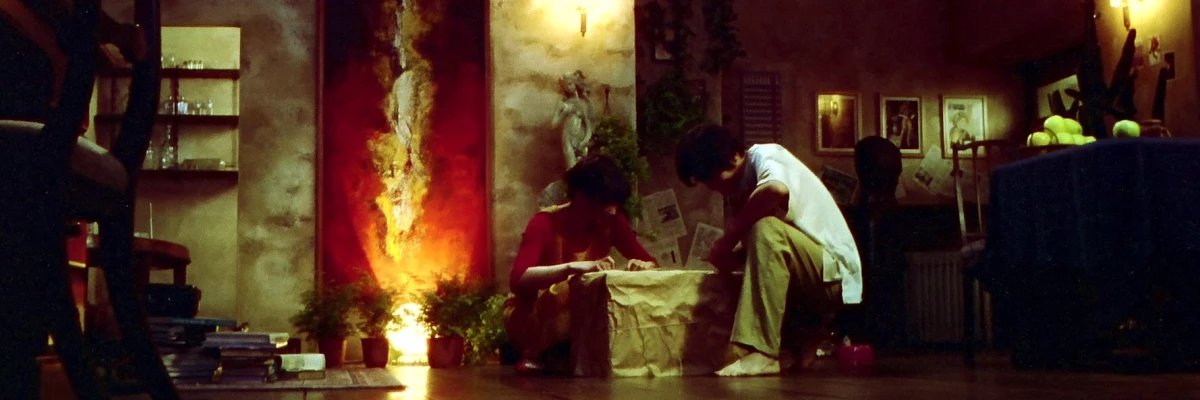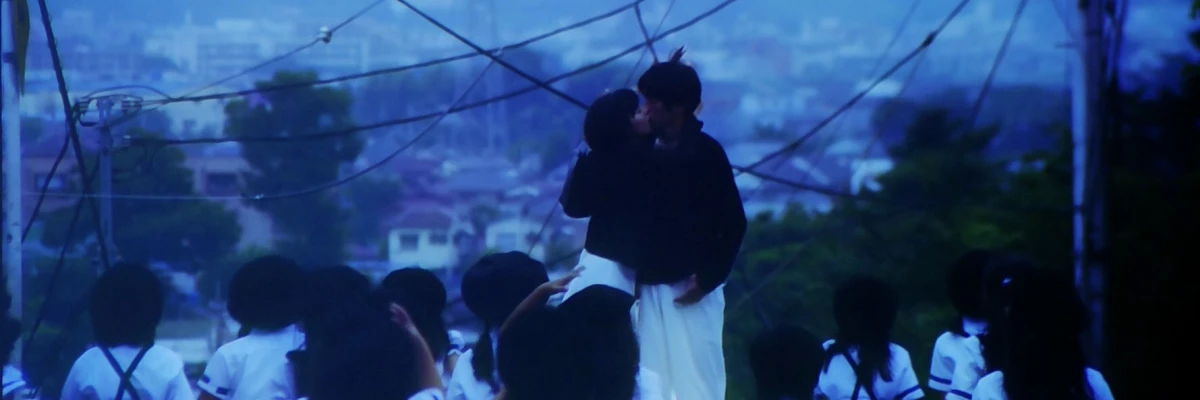Undo

Shunji Iwai's global status is up for a reappraisal, that much is certain. His older films in particular seem to have survived rather well, point in case: Undo. It's a film my brain switched with Toshiaki Toyoda's boxing documentary Unchain (for unexplained reasons, I have no clue either), so revisiting this film came with quite a few surprises. I'm glad I did though, as I'd forgotten most of Undo's specifics and it's a big standout among its contemporaries. Getting your hands on this film may prove a little tricky, but it's certainly worth the trouble.

I had a similar Iwai experience earlier this year when I rewatched Picnic (I even upgraded that one's rating, a rare occurrence these days). There's a certain artfulness to Iwai's early work that doesn't seem to be getting in the way of the drama and romance on display, which is quite refreshing. His landmark film and biggest breakthrough may be All About Lily Chouchou, but I think his earlier films have a better balance of arthouse and genre sensibilities. The more I'm rewatching his work, the bigger my respect for Iwai's entire oeuvre.
Undo is a film that tackles the change in the inner dynamics of a romantic relationship and does so in a unique way. As relationships grow and evolve they may leave one or both partners unsure of whether this was what they signed up for. Some may want to go back to how things were before, but that's not the nature of things, so failing to leave, they develop natural defense mechanisms to deal with the situation. Iwai handles this in a very direct yet cinematic way, as one of the leads becomes infatuated with the act of tying things together.
Moemi and Yukio are in a committed relationship, but things aren't going too well. Yukio works at home as a writer yet Moemi still feels neglected and alone. She wants a companion pet, but the house rules don't allow for animals, so as a compromise, Yukio buys her two turtles. This only seems to make things worse and Moemi starts to retreat into herself, tying knots wherever she goes and whenever she gets the chance. Yukio becomes worried about her behavior and takes her to a psychiatrist, who suggests there must be something off in their relationship.

Iwai's older films are very visual, and even though most of Undo is set within the confines of a small apartment, this doesn't stop Iwai from playing around with the cinematography. The limited setting may have even helped as the small room allowed him to experiment with color, framing, and lighting. The film still has that granier 90's Japanese vibe, but without the murky colors that usually go along with it. There are some landmark shots here that are bound to stick, especially some of the latter scenes are of impressive visual beauty.
The soundtrack is also on point, but that's not too surprising. Iwai is one of the few directors who is known for paying extra attention to the music, and it usually pays off. The music was handled by Remedios (Iwai would work with them again for Love Letter) and while not my genre, it flows very well with the film and does what a good soundtrack does: it directs the atmosphere and it does so confidently and explicitly. The way the music is incorporated here is exemplary and is once again proof that a good soundtrack is one of the quickest roads to creating a strong mood.
The performances are lovely, which is crucial when there are only two actors, an extended cameo, and some extras. Etsushi Toyokawa is a familiar face and rarely disappoints, but it's Tomoko Yamaguchi who puts in the most impressive effort. She truly embodies Moemi and gives birth to a character that is easy to sympathize with, even though she's introverted and can be difficult to read. There's also a fun cameo of Tomoro Taguchi, a respected cult actor, but his role is rather inconsequential. The two leads do an excellent job though, which is all that counts here.

Undo is a short(er) film, so it shouldn't come as a surprise that its narrative structure is quite basic. There's a beginning, middle, and end, with very few twists and turns in between. We see the couple in trouble, we see how Moemi learns to cope and then we're already being launched into the finale. This isn't a film that is too concerned with the narrative though, Undo is more about the characters and the cinematic abstraction of their issues. And it does an excellent job, without wasting too much time on secondary nonsense.
Undo is perfect for me. The film is short and to the point, Iwai creates a lush and vibrant atmosphere, the performances are strong and the central concept is emotionally poignant as well as extremely cinematic. Just like Picnic, I am astounded the film had slipped away in my memories, I'd be surprised if that would happen a second time though. Iwai's films hold up very well the second time around, it's about time the man gets his celebratory collection box. For now, I'm just going to enjoy remembering the experience that is Undo. Fans of turn-of-the-century Japanese cinema should give this one a go.